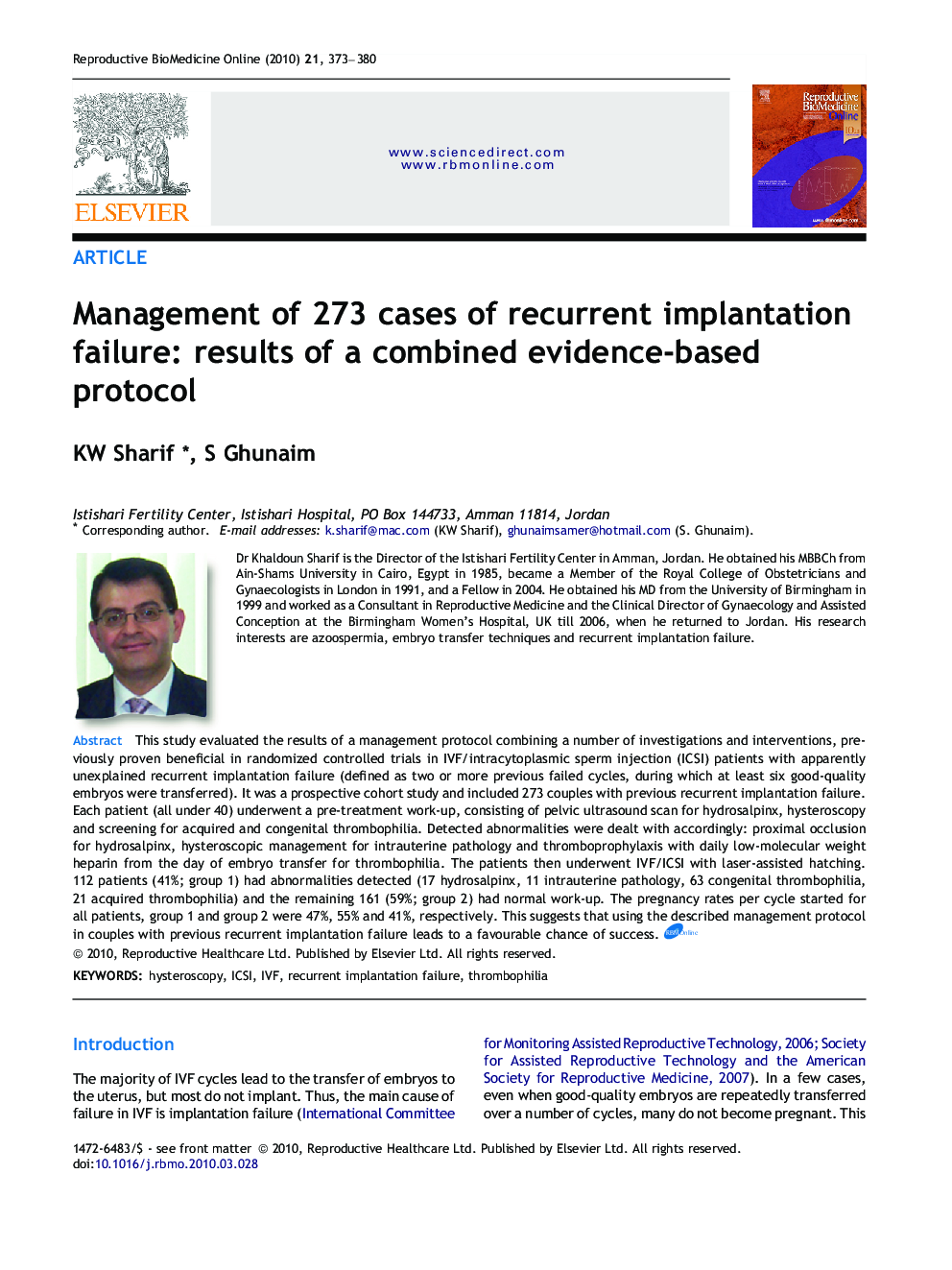| Article ID | Journal | Published Year | Pages | File Type |
|---|---|---|---|---|
| 3971517 | Reproductive BioMedicine Online | 2010 | 8 Pages |
This study evaluated the results of a management protocol combining a number of investigations and interventions, previously proven beneficial in randomized controlled trials in IVF/intracytoplasmic sperm injection (ICSI) patients with apparently unexplained recurrent implantation failure (defined as two or more previous failed cycles, during which at least six good-quality embryos were transferred). It was a prospective cohort study and included 273 couples with previous recurrent implantation failure. Each patient (all under 40) underwent a pre-treatment work-up, consisting of pelvic ultrasound scan for hydrosalpinx, hysteroscopy and screening for acquired and congenital thrombophilia. Detected abnormalities were dealt with accordingly: proximal occlusion for hydrosalpinx, hysteroscopic management for intrauterine pathology and thromboprophylaxis with daily low-molecular weight heparin from the day of embryo transfer for thrombophilia. The patients then underwent IVF/ICSI with laser-assisted hatching. 112 patients (41%; group 1) had abnormalities detected (17 hydrosalpinx, 11 intrauterine pathology, 63 congenital thrombophilia, 21 acquired thrombophilia) and the remaining 161 (59%; group 2) had normal work-up. The pregnancy rates per cycle started for all patients, group 1 and group 2 were 47%, 55% and 41%, respectively. This suggests that using the described management protocol in couples with previous recurrent implantation failure leads to a favourable chance of success.
